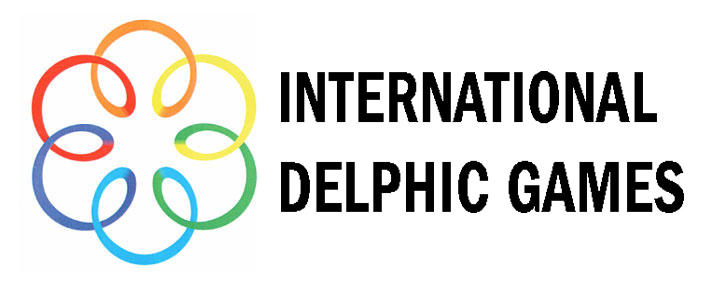International / National Art Federations (AFs) / Competitions & Festivals
Extract of the Delphic Bye-Laws (Section IV)
Recognition of International Arts Federations, Competitions and Festivals
In order to develop and extend the Delphic Movement, the IDC recognises every AF and other non-governmental organisation which represents one or more artistic disciplines at an international level and which works in close association with appropriate national organisations.
Insofar as the role of the AFs within the Delphic Movement is concerned, their statutes, general practice and activities must be in agreement with the Delphi Code. It must be stressed, that all AFs nonetheless maintain their independence and autonomy of administration and artistic expression.
The International Arts Federations are working in close relationship with the Delphic Arts Commission. The Arts Commission is the highest authority of the Delphic Games and Youth Delphic Games and is acting on behalf of the International Delphic Council.
Responsibilities and tasks
- The tasks of the AFs are as follows:
- The establishment of criteria and rules of participation, as well as securing the putting into practice of those criteria and rules, for the presentation of the artistic disciplines in question, together with the Delphic Arts Commission;
- The establishment and development of the artistic disciplines which they represent on a worldwide basis;
- To make an active contribution towards the realisation of the goals of the Delphic Statutes;
- The assumption of expert and technical oversight and responsibility for their own artistic disciplines during events which enjoy the patronage of the IDC;
- o The establishment of criteria which make possible competition or presentation of particular artistic disciplines in accordance with the Delphi Code and the presentation of these criteria to the IDC for approval;
- The lending of technical assistance in the running of any future Delphic programmes.
- Additional tasks of the AFs include:
- To make suggestions to the IDC concerning the Delphic Movement and also the organisation and running of the Games;
- To express their opinion regarding the candidates for and participants in the Games and in particular to address their attention to the logistical situation prevalent in cities which apply to host events;
- To work together with the Delphic Movement in preparing Delphic Sessions and Congresses;
- On the request of the IDC to take part in the activities of the IDC commissions.
Affiliate Members
Countries may have multiple Affiliate Members these are organisations that are committed to public support for the arts, including international, national or sub-national support or service agencies. They have the right to be present at all meetings, sessions and gatherings of the IDC and the right to speak.
International Organisations
An international Arts & Culture organization must have members or artistic activities in a minimum of twelve countries with more than three voting members outside the region* where it is based.
The organization must demonstrate that it subscribes to the IDC position on cultural rights develop policy positions to advance the welfare of its area or cultural activity and advocate these to the decision-makers including governments. It must be governed according the Delphi Code principles and offer services to members and/or community at large.
- In the IDC, the term region refers to the following: Africa Arab World Asia/Oceania Europe The Americas
National & Specialized Organisations
Any legally constituted organisation, association, society, company, foundation, NGO, working in the field of arts and culture, which does fulfil the requirements of an international or regional arts and culture organisation can be accepted as organisation member of the IDC.
In order to be admitted as member, the organisation must support the mission and objectives as well as the Delphi Code of the IDC and to commit to fulfil the duties of a member.
It must have members or arts and culture activities, demonstrate that it subscribes to th IDCs position on cultural rights and be governed according to democratic principles.
